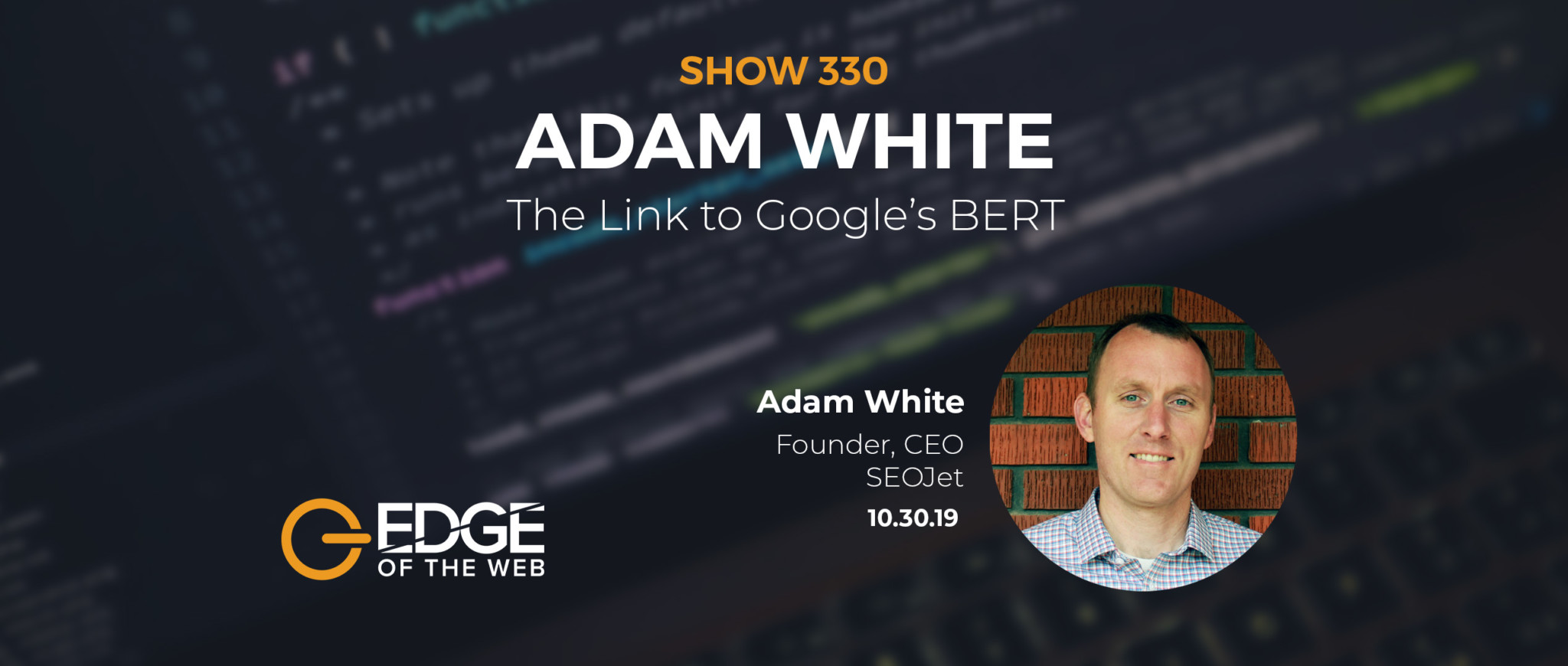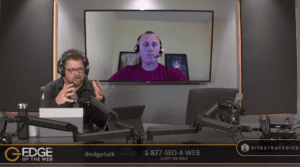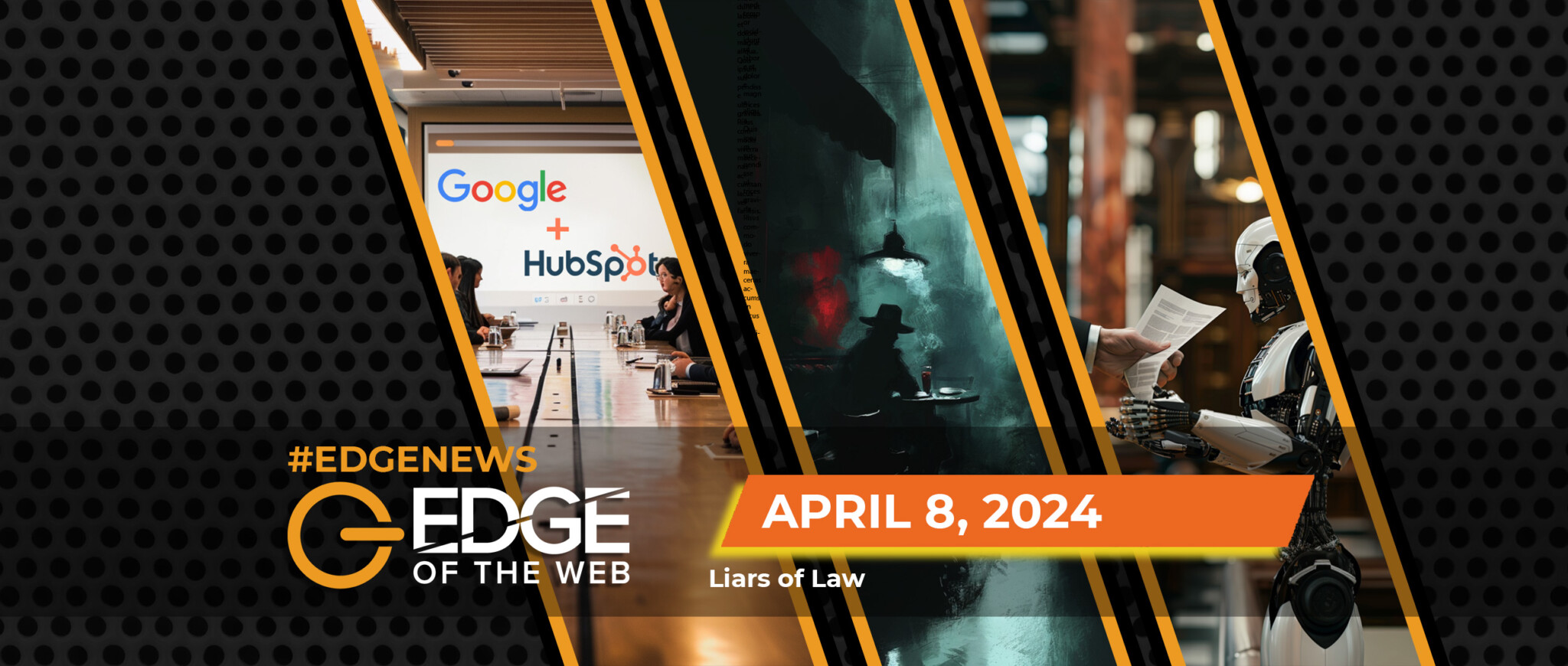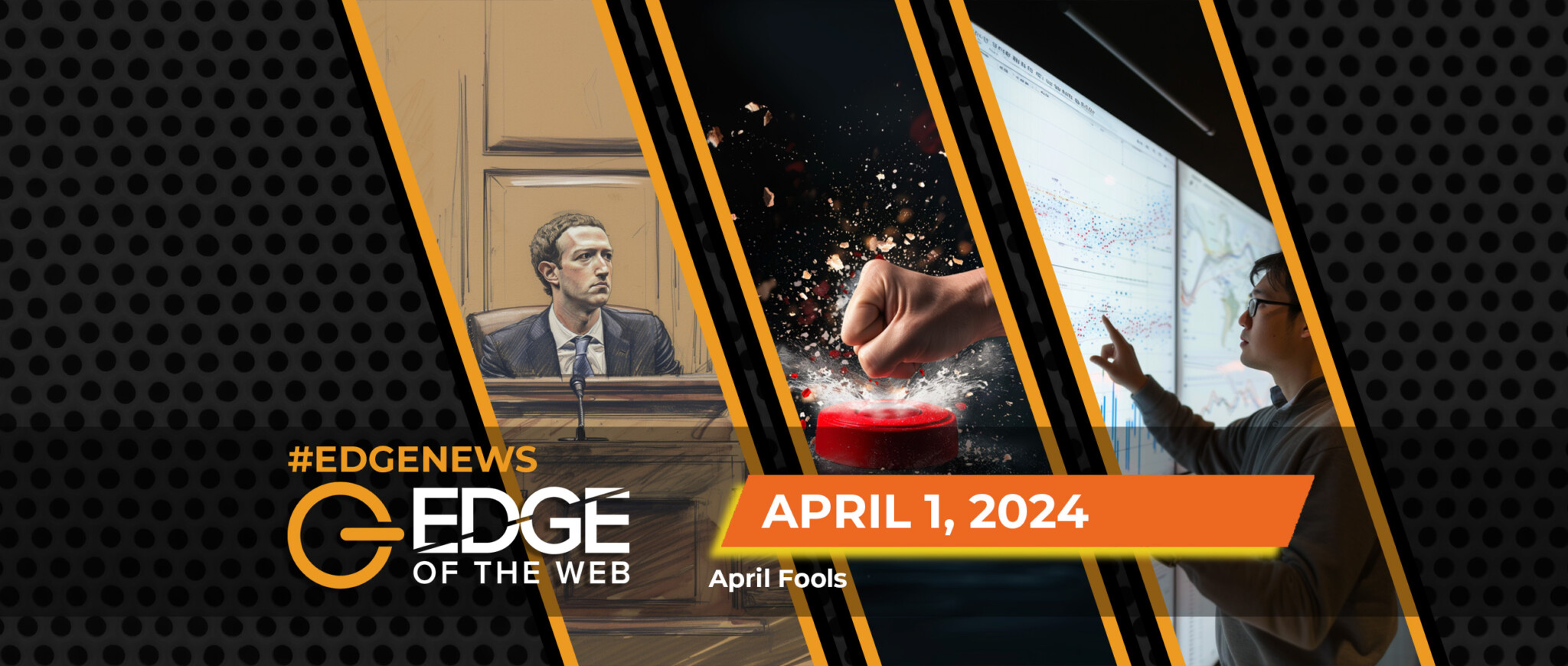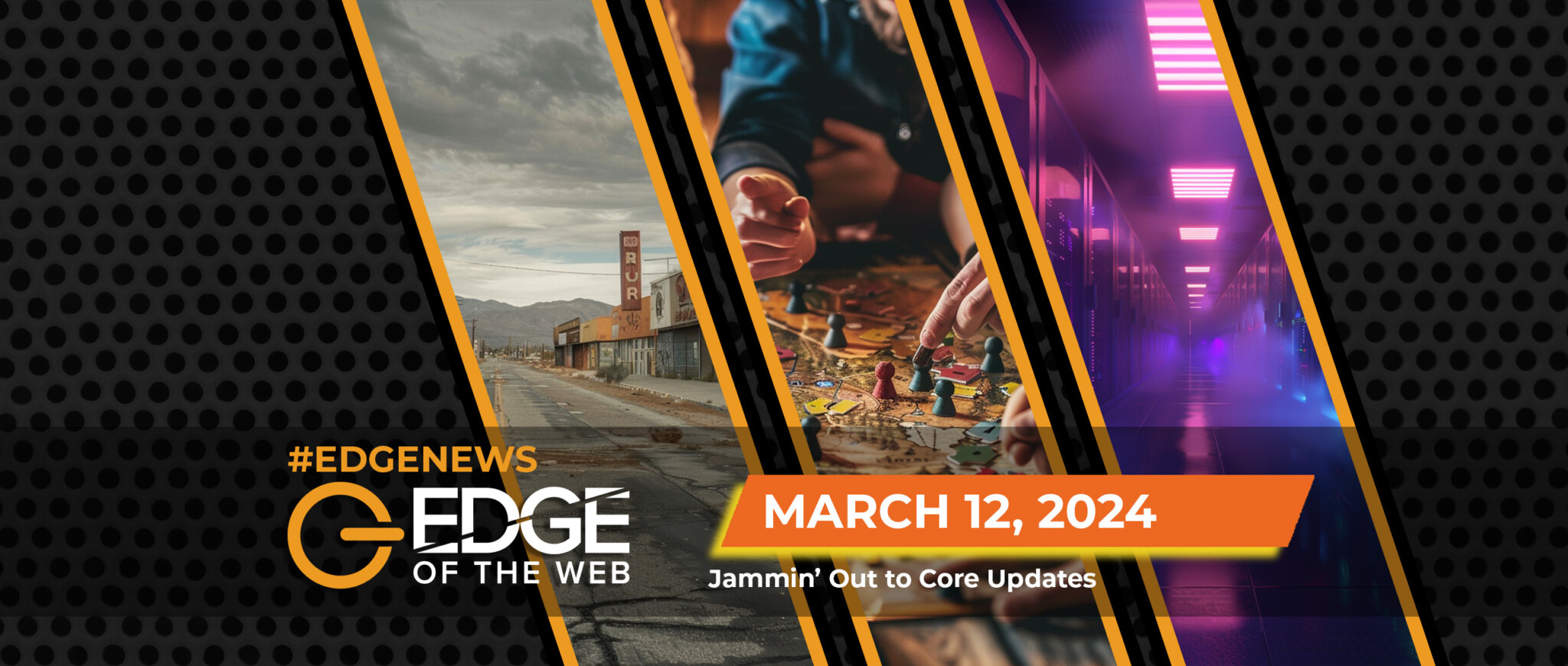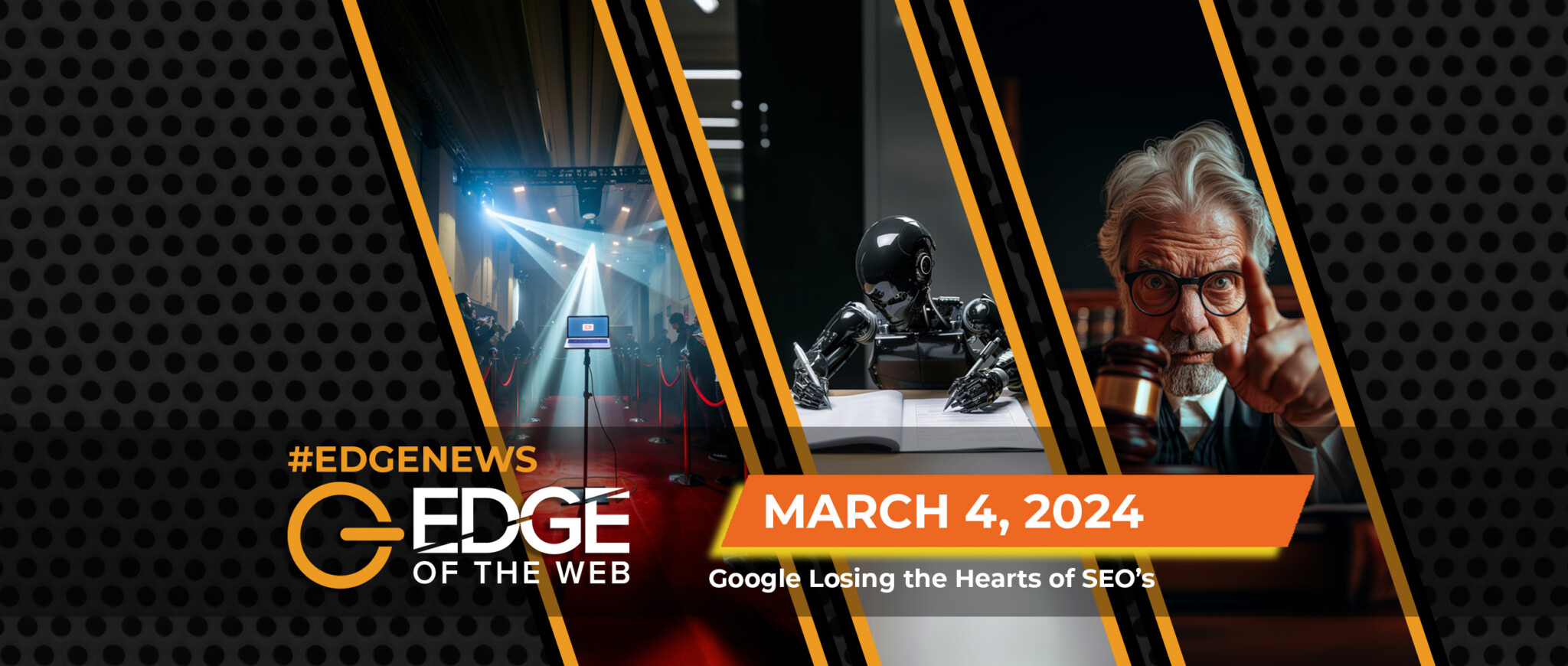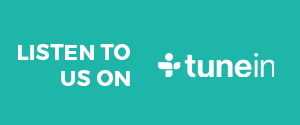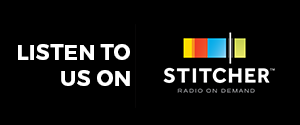When you want to know what’s happening in the world of digital marketing and SEO, turn to the news roundup segment in each episode of the EDGE. The latest features host Erin Sparks and Creative Studio Producer Jacob Mann along with special guest Adam White, Founder and CEO of SEOJet. Here’s the news roundup from Episode 330 of the award-winning EDGE of the Web podcast:
Google Just Announced a Major Search Algorithm Change That Users Will Probably Love, and Some Businesses May Absolutely Hate
From Jeff Haden on Inc. we learn that Google Just Announced a Major Search Algorithm Change That Users Will Probably Love, and Some Businesses May Absolutely Hate. BERT-optimized natural language processing (NLP) means Google will look at more of the words in a search query to better understand context and intent to return better results to users. For example, say you search for the search sentence, “Can you get medicine for someone pharmacy.” The old algorithm picked up “medicine” and “pharmacy” and returned local results under the assumption you were looking for a nearby drug store. The new algorithm notices “for someone,” which is the transformer, and it determines you’re looking for information about whether you are allowed to pick up someone else’s prescription for them. Same search query, very different results.
- Erin Sparks: You really can’t see the effect because it’s not only long tail phrases in play, it’s also the fact how usually you’re watching your ranks in more short tail keyword references and you’re not going to be seeing the adjustment. You have to look at the Google search console to be able to see what’s really happening on your website.
- Adam White: Google’s intent is always to provide the best user experience because they’ll be able to sell more ads that way. That’s the bottom line. So, this doesn’t surprise me, although I’m impressed by the technology. In the English language there are so many nuances to slang and in different parts of the country things are said differently. To use a computer to figure that out to me is extremely impressive. And SEOs will always figure out a way to work with it in order to get pages to rank. But overall it’s a development that is good for users in general.
Facebook Announces Program to Help News Sites
According to Roger Montti on Search Engine Journal, Facebook Announces Program to Help News Sites. Facebook announced a new feature called Facebook News. Facebook News was created in partnership with the journalism industry. Given Facebook’s popularity, Facebook News may become a significant source of audience growth for publishers. There will be a News tab with four different news features, and a fifth feature that lets users personalize their news.
- Erin Sparks: This is a paid relationship with news organizations. There’s the crux and what is very contentious. Some are concerned about these news companies being able to pay for their visibility on the mews feed because we all know the algorithm inside of Facebook has been changing wildly. This Facebook’s way to monetize this.
- Adam White: Facebook knows their user base are adults who do consume news. The younger set aren’t interested in Facebook. They’re on Instagram. So from Facebook’s perspective, for their adult users who consume news, why not try to keep them on their platform even for their news. Plus it’s a way for them to monetize their content more, apart from the paid ads.
Google’s John Mueller On Link Velocity and Penalties
On Search Engine Journal, Roger Montti reports about Google’s John Mueller On Link Velocity and Penalties. Google’s John Mueller answered a question about getting links too fast and if that would trigger a penalty. The rate at which links are acquired is known in the SEO community as link velocity. John Mueller’s answer provided insight into the topic of getting links too fast and whether that results in penalties.
- Erin Sparks: There’s been a lot of debate about this in the SEO community, but those who think fast accumulation of links could result in a penalty have erroneously linked it back to a 2003 patent. Mueller discounted the idea of a link velocity penalty, but did say it’s all about developing links in a natural way. If you suddenly have 200 backlinks in two days, you’re probably not getting those in a natural way. You’re probably buying them.
- Adam White: I do appreciate Mueller’s focus on natural links. That’s what my SEOJet software is all about – building links the right way. It’s not about the sheer velocity of getting links, it’s about getting links in a way the at least looks natural to Google. If you write a fantastic blog post and thousand people link to it in one day because it’s awesome, that’s still natural. You won’t get penalized for that. Google will reward you if you publish fantastic content that gets lots of attention and links. But if you have tons of links that it can tell aren’t naturally developed, then they’re going to penalize you.
Connect with Adam White and SEOJet
Website: https://seojet.net
Facebook: https://www.facebook.com/seojetdotnet
Special Delivery: Digital Marketing News in the EDGE Newsletter
Get the digital marketing news you can use delivered directly to your inbox! Go to EDGEofthewebradio.com and you’ll see the subscribe box at the very top of the page. It’s free-of-charge, and we will never use your email for anything except sending you the newsletter. You can also sign up by texting the word “EDGETalk” to 22828, but not while you’re driving! Enjoy these digital nuggets of gold from the EDGE – your source for digital marketing news.







